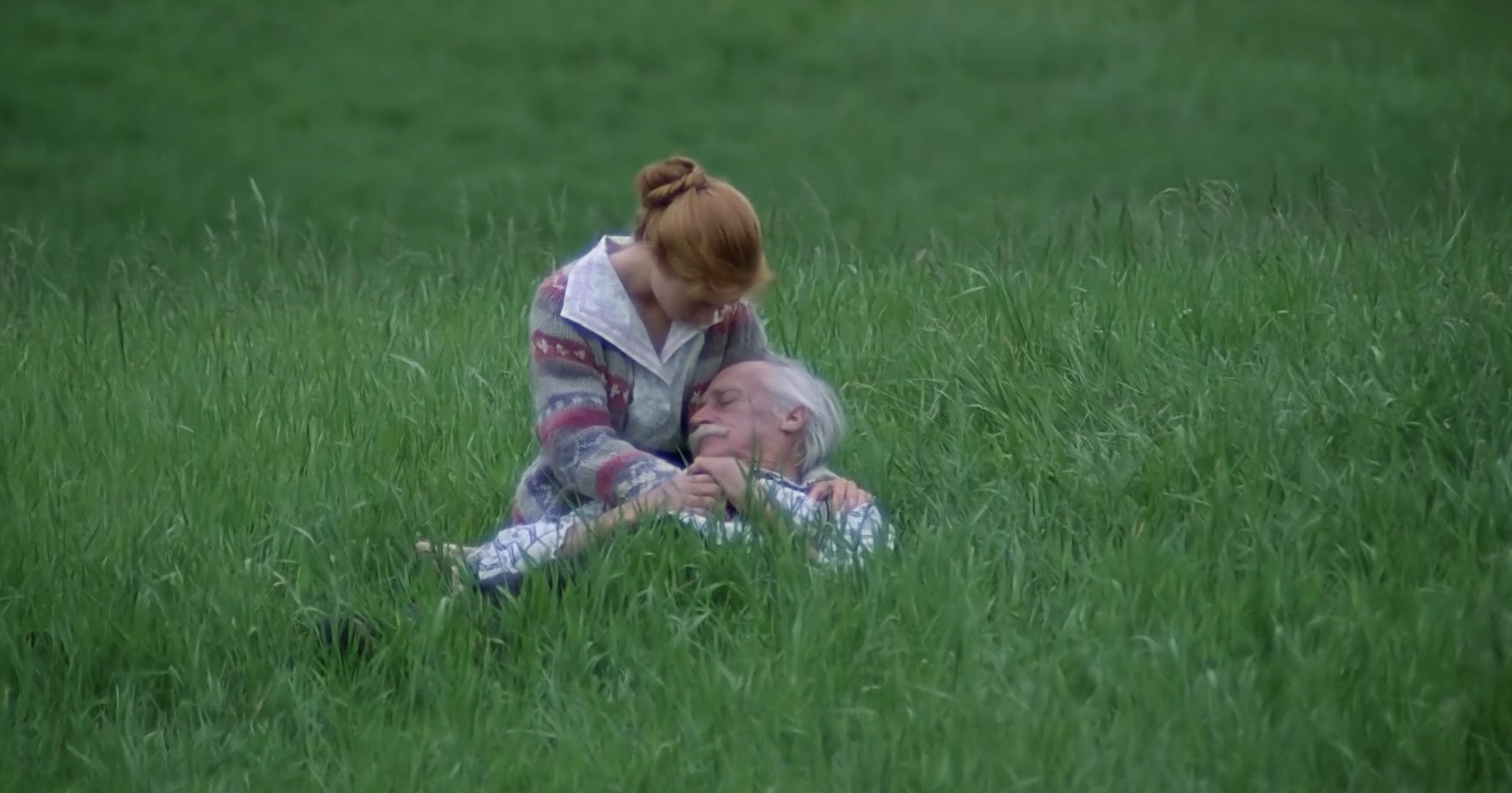Must-See Philosophy Movies: Apartment for Peggy (1948)
Movie Poster for Apartment for Peggy (1948), 20th Century Fox
When I was about 12 years old, I watched the 1948 film Apartment for Peggy on television with my maternal grandmother, Helen Forssell. Although I couldn’t remember most of the movie, I remembered a couple of scenes in particular, and I remember that the movie made quite an impression on me, so much so that I recently, 30 years later, picked up a copy of Apartment for Peggy on DVD (it’s not available on Blu-Ray, apparently), having remembered fondly it as one of my formative movie-viewing experiences.
If you are into philosophy and you haven’t ever seen Apartment for Peggy, and especially if you are a philosophy instructor or student, you are truly missing out, as there aren’t too many films in which philosophy in general, and teaching philosophy in particular, are central to the plot. And yet, in Apartment for Peggy, we find an aging philosophy professor as the main character (not Peggy, despite the name of the film) in the form of one Professor Henry Barnes (played by Edmund Gwenn, better known for his role as Kris Kringle in Miracle on 34th Street (1947).
In Apartment for Peggy we first see Professor Henry Barnes with an existential crisis, contemplating suicide because of the monotony of his current life—a life of endless routine following the death of his wife. He is teaching his classes, yes, but he is unhappy and has used his philosophical training to convince himself that suicide is the only rational course of action for a person in his situation, so much so that he has even procured (so he thinks) a large dose of sleeping pills from his doctor, which he plans to consume to end his life following the completion of his book, some three weeks hence at the opening of the film.
Jason Taylor (William Holden) and Professor Henry Barnes (Edmund Gwenn), Apartment for Peggy (1948), 20th Century Fox
“What does all of that have to do with Peggy, much less with an apartment?” you may be asking. Enter the titular character, Peggy Taylor (played by Jeanne Crain), the young, pregnant wife of a G.I.-Bill-student husband, Jason Taylor (played by William Holden, best known for films such as Stalag 17, Sunset Boulevard, and The Towering Inferno). Jason Taylor and his wife Peggy are living in a trailer park near campus while Jason pursues a chemistry degree at the local university, with three years to go until he obtains his Master’s degree and can hopefully obtain a job as a chemistry teacher. Although Peggy doesn’t complain about the quality of life—they live and eat like poor students)—we first see Peggy on a quest to find a more comfortable place for her and Jason to live.
Peggy encounters Professor Barnes by chance on a park bench and they strike up a hypothetical discussion about the meaning of life, the arguments for and against suicide (hypothetically, of course), and the fact that Peggy and her husband are looking for a better place to live. Although Professor’s Barnes’s claims about the merits of suicide are a thinly-veiled reference to himself and his own plans for suicide, and he doesn’t initially show much compassion for Peggy’s and her husband’s living situation or their predicament as poor students seeking out a living on the G.I. Bill, Professor Barnes does condescend to refer Peggy to the housing office in hopes of finding better accommodations.
Upon visiting the housing office, Peggy discovers that Professor Barnes lives quite along in a great big house with an empty attic, and Peggy hatches a plan to convince Professor Barnes to let her and her husband Jason move in. Although Professor Barnes is most insistent that Peggy and Jason are not welcome, Peggy talks Professor Barnes into relenting—and, wow, can Peggy ever talk!—whereby she and Jason move into the attic and begin fashioning themselves a makeshift apartment from various found objects and discarded items from Professor Barnes.
Professor Barnes’s Attic, Apartment for Peggy (1948), 20th Century Fox
Over the course of the film, we see much philosophical reflection on the meaning of life as it relates to friendship, relationships, helping others, making a contribution to society, helping others in need, and so on. And, over the course of the film, Professor Barnes transforms from a curmudgeonly old, worn-out philosophy professor to a compassionate, warm, caring, reinvigorated soul who comes to think of Peggy and Jason as family, thus ending his own suicidal quest in favor of throwing himself back into the world and back into life.
So that’s all very charming, but where does philosophy enter the picture? Besides the introspective, existential dialog on life, death, the meaning of life, and suicide, a charming subplot of the movie involves Peggy organizing makeshift philosophy classes, taught by Professor Barnes, of course, for the wives of the many G.I. Bill students attending the university. One of these wives, a friend of Peggy’s, complains to Peggy that she feels she has nothing to talk to her husband about and that she is feeling left behind as a result of the fact that the friend’s husband is getting an education while she is left to clean house and to assume parental duties following the birth of their child (the beginning of the Baby Boom era). The friend believes that she is in danger of losing her husband as the husband becomes more educated and will want an intellectual equal to talk to. Peggy expresses similar feelings, both along the same line and because her husband Jason is torn between pushing forward with his education at the expense of a lower-quality of life for Peggy and their expected child, and accepting a better-paying job as a car salesman out of town, which Peggy rightly identifies as Jason’s running away from the unknowns of continuing to push forward with his own education and of a modest life as a chemistry teacher.
In response to these worries, Peggy volunteers Professor Barnes (ropes him into it, more accurately!) into teaching philosophy classes for G.I. Bill students’ wives, resulting in some hilarious banter that I remembered from my first viewing of the film when I was 12 (“Do you mean Socrates was against democracy?!?”). Although Professor Barnes tries to use his decades-old philosophy lectures, which are so worn out and lifeless as to practically be written in stone on the index cards he uses to teach these makeshift classes, he finds almost immediately that the wives—his de facto philosophy students—immediately engage with the various philosophical concepts and ideas on their own, resulting in lively debates and an overview of much of Western philosophy in a relatively short amount of time on screen, no small screenwriting or pedagogical feat, if I do say so myself.
Ad Hoc Philosophy Classes by Professor Barnes, Apartment for Peggy (1948), 20th Century Fox
Aside from the philosophical twists and turns that Apartment for Peggy takes, both because of Professor Barnes’s crisis of meaning and because of these ad hoc philosophy class sessions, Apartment for Peggy was surprisingly progressive in many ways. Peggy and the other students’ wives lament the fact that they aren’t afforded the same educational opportunities as their G.I.-Bill-student husbands. And Professor Barnes and the other university faculty members remark that they wish their students were as enthusiastic and diligent about their studies as the students’ wives. I would go so far as to cite this film as important in the history of feminism in the 20th century, even given some of the regressive elements still present in the backdrop of the film, but against which Peggy and the other students’ wives are reacting.
Apartment for Peggy isn’t all roses and sunshine, however, as there are some truly heart-wrenching moments in the film, such as the loss of Peggy’s baby, itself resulting in some introspective philosophical dialog between Peggy and Professor Barnes and between Jason and Professor Barnes about the meaning of life and death. And when Jason is mere inches away from dropping out of college and taking a better-paying job, some truly inspiring dialog ensues about the value of education and the importance of doing something more worthwhile with one’s life as a teacher, as opposed to the hollow and endless pursuit of money.
Although there is much more I could say about Apartment for Peggy, it is unquestionable to me that this movie primed my young, 12-year-old mind for a future career in philosophy. Had I not watched Apartment for Peggy with my grandmother, I myself might not have been as interested in philosophy a few years later when I did go to college and decided to choose philosophy as my major. And, although this film falls somewhat short of many cinematic ideals in terms of its dramatic pacing and plot, it is truly masterful in its weaving together of an inspiring, character-driven story that covers the nature of friendship and family, the value of education, death and meaning, the pros and cons of suicide, the history of philosophy (from Plato and Aristotle to Lucretius and Thomas Aquinas, even to Spinoza), and with memorable and charming characters to boot.
So if you yourself are a philosophy teacher or a philosophy student, if you are struggling to find meaning in life and with the challenges of your own situation or your educational trajectory, if you need a dose of inspiration about the meaning of life and a high vision about what education and our roles as educators are all about, do yourself a favor and spend a couple of hours watching Apartment for Peggy. It’s not an overstatement to say that Apartment for Peggy changed the trajectory of my life and my then-future career, and it was a real joy to rewatch Apartment for Peggy at this stage in life, now as a not-quite-aging philosophy instructor myself! I just hope I never let myself get to the point of seriously entertaining dropping in the harness like Professor Barnes, even given his new outlook on life by the end of the film. But I hope I’m just as inspiring to my students as Professor Barnes ends up being, as and Peggy and Jason Taylor are, in turn, to Professor Barnes.
Staying hungry for life and finding meaning and value in our relationships and projects, our families or our philosophy classes alike, is not always easy, and it was charming to see a character like Peggy herself become a type of Socrates figure for Professor Barnes, dragging Professor Barnes kicking and screaming out of the (Platonic) cave of depression in which we first see him, itself making the film a psychological meta-allegory for, and reversal of, Plato’s Allegory of the Cave.
In the Allegory of the Cave, it’s the philosopher who is able to run back into the cave to attempt to free others from their chains and from staring at mere shadows on the wall, helping them see that there is a world of knowledge and illumination in the sunlight outside the cave. And yet, even though Professor Barnes himself is a philosopher, he has found himself in an emotional cave in need of rescuing every bit as much as the prisoners in Plato’s cave.
If I have one criticism of Apartment for Peggy it’s that this rich parallel to Plato’s Allegory of the Cave, even if doing so would have been a bit on-the-nose, wasn’t identified more explicitly within the film itself, especially with all the dialog about Plato in the film already.
All in all, I count Apartment for Peggy as essential, must-see philosophy in film.











